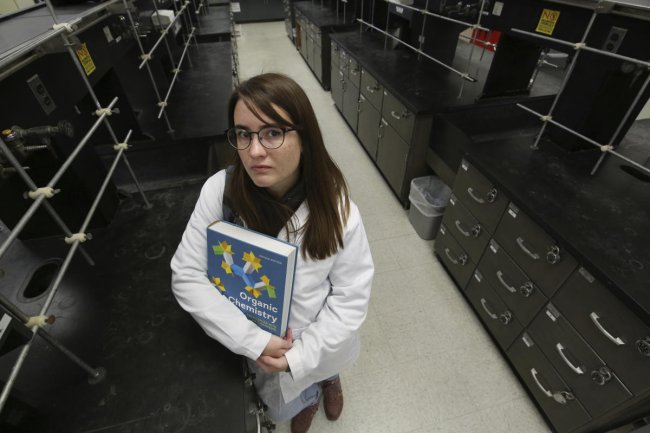Threats emerge as witnesses show how Google built its empire
A clear storyline is starting to emerge in the opening days of a 10-week trial where the government is seeking to break up Google's hold over internet searches. According to the first few days of testimony from four witnesses, as framed by the government's lawyers, Google has worked tirelessly over the last 20 years to ensure its search engine is the default option for a host of mobile devices, wireless carriers and web browsers. The company has done this despite knowing it risked creating a monopoly and the pushback it received from key business partners like Samsung, according to the U.S. Department of Justice and several states that are also suing. Still, though, Google has largely gotten its way. The central theme of the trial is whether the actions of one of the world’s largest companies are aligned with the preferences of its customers. The case centers on a series of revenue-sharing agreements, worth tens of billions of dollars annually, that Google has with Apple, Mozilla, Sams


A clear storyline is starting to emerge in the opening days of a 10-week trial where the government is seeking to break up Google's hold over internet searches.
According to the first few days of testimony from four witnesses, as framed by the government's lawyers, Google has worked tirelessly over the last 20 years to ensure its search engine is the default option for a host of mobile devices, wireless carriers and web browsers. The company has done this despite knowing it risked creating a monopoly and the pushback it received from key business partners like Samsung, according to the U.S. Department of Justice and several states that are also suing. Still, though, Google has largely gotten its way.
The central theme of the trial is whether the actions of one of the world’s largest companies are aligned with the preferences of its customers. The case centers on a series of revenue-sharing agreements, worth tens of billions of dollars annually, that Google has with Apple, Mozilla, Samsung and others to be the default search engine on web browsers and mobile phones, as well as control of the ads that populate search results. Google does not disclose the exact value of the deals.
Antonio Rangel, a behavioral economist and professor at the California Institute of Technology, testified over Wednesday and Thursday about how Google pressed to be the default search engine because consumers were more likely to stick with the pre-installed option rather than go through a lengthy and sometimes onerous process of switching to what could be a better product.
“Defaults are the most common aspect of [consumer] choice architecture, they have a powerful impact on consumer decisions,” Rangel said.
When customers were presented with other choices, like DuckDuckGo, a privacy-focused search engine, they largely stuck with that other option, Rangel said.
Google, meanwhile, says it’s the dominant search engine because it has the best product, and anyone can switch to a competitor with a few clicks of their finger.
Yet while Google pressed Rangel repeatedly to admit that he is not an expert on search engines or Google’s business contracts, he appeared to largely withstand the two hours of scrutiny. The DOJ’s lawyers spent just a couple of minutes with follow-up questions, suggesting they were confident in Rangel's testimony.
On Thursday, Google executive James Kolotouros, who heads up the company’s partnerships with Android device makers like Samsung, testified that the South Korean electronics giant, one of the world’s largest companies, did get some unspecified concessions from Google, but was still unsuccessful in keeping Google from being the default search engine.
Kolotouros and an executive from Verizon are expected to testify Friday. Much of that testimony will be sealed from the public because Google’s contracts with Samsung and Verizon are confidential.
DOJ lawyers dug deep into the past to show how Google's conduct led to its market power today. Chris Barton, a former Google employee who negotiated search agreements in the late 2000s, testified that default exclusivity was more important than anything else in the contract.
When Google objected to the testimony as old and irrelevant, U.S. District Judge Amit Mehta overruled the company, saying it is “foundational to what comes after.”
In a 2003 memo, Google’s longtime chief economist Hal Varian wrote that the company’s defensive strategy should include preventing customers from switching search engines.
“However we do have to be sensitive to antitrust considerations. Look at it this way: we are currently a dominant player in an industry and we are trying to discourage entry by a potential competitor.”
The trial is being closely watched by corporate America, regulators, lawmakers, technologists, lobbyists and a host of others. The first week saw appearances in the gallery from Rep. Ken Buck (R-Colo.), who has spoken out against the power of Google, Apple, Meta and Amazon, and Tim Wu, who played a key role in developing President Joe Biden’s competition policy in the White House.
A Google loss could not only dramatically restructure the company, but it would embolden regulators to take on other tech giants. A Google win could force a rethink on how regulators and policy makers approach the power of the dominant tech companies.
Any result is likely years away. The trial is centered solely on whether Google broke the law, and Mehta is not expected to rule until the spring. A decision against Google would result in a second trial to determine an appropriate remedy. Lengthy appeals are certain to follow.
The non-jury trial is expected to last into late November, and Google will have an opportunity to put on its defense in the last few weeks.
What's Your Reaction?






















